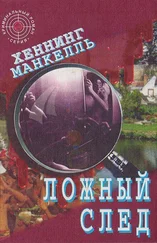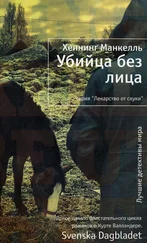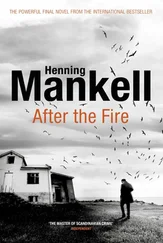I don’t understand this, she thought. Lying behind the bench I’m sitting on is an old man who has been beaten and flung on to the ground, and nobody is doing anything to help him. Not even I.
She didn’t know how long they remained seated on the bench, but when Ana decided it was time to go back to O Paraiso, the old man had vanished. Perhaps he had crawled deeper into the clump of rhododendron bushes, and hidden himself alongside the poisonous snakes that everybody was scared of.
A few days later something took place that shook her deeply, and made her wonder what was happening to her. Laurinda dropped a dish when she was serving Hanna’s morning tea. The dish shattered when it hit the stone floor. Hanna was standing in front of the mirror, combing her hair: she turned round quickly and slapped Laurinda on the side of the head. Then she pointed at the shards and told her to pick them up.
Laurinda crawled around on her hands and knees, picking up the bits of porcelain. Meanwhile Hanna sat on the edge of the bed, waiting for the tea to cool down sufficiently for her to be able to drink it.
Laurinda stood up. That annoyed Hanna.
‘Who said you were allowed to stand up?’ she asked. ‘There are still bits of china on the floor.’
Laurinda got down on her knees again. Hanna was still annoyed because she could never read Laurinda’s thoughts from her facial expression. Was she afraid that Hanna was going to punish her? Or merely indifferent, or even filled with contempt for this white woman whose life she had once helped to save?
Laurinda’s eyes were very bright, gleaming with a sort of mysterious inner radiance that Hanna could never recall having seen in the eyes of a white person.
‘You can go now,’ she said. ‘But I want to know when you are coming and going. I want you always to wear shoes when you wait on me.’
Laurinda stood up and disappeared into the darkness. She somehow managed to make her bare heels sound like shoe heels. Hanna assumed she was on her way to the kitchen to partake of some of Mandrillo the chef’s stew.
Hanna remained seated in the darkness. Shadows were dancing around the gas lamp. She tried to envisage the house by the river in her mind’s eye. Elin, her brother and sisters, the brown and clear water flowing down from the mountains.
But she could see nothing. It was as if everything was hidden behind a film her eyes couldn’t penetrate.
She regretted the way she had treated Laurinda. It frightened her — the ease with which she had humiliated this friendly woman. She felt ashamed.
Hanna slept badly that night. The next day the chimpanzee came up to her room. He was carrying a silver tray with a flower from the jacaranda tree, sent to her by Senhor Vaz. There was no message, only his name.
The blue flower from the jacaranda tree was still alive, floating in a little shallow dish of water, when something happened that changed Hanna’s life, yet again.
It was early morning when she went downstairs, feeling fit again at last, even if she was still grieving over the loss of Lundmark.
A white man with his shirt unbuttoned, barefoot, but still with his hat on his head, was lying on a sofa, fast asleep. There was no sign of the women who worked in the brothel: they were still asleep in their rooms — alone or together with clients who had paid for a whole night’s indulgence. The only other being awake at this time in the morning was Carlos the chimpanzee. He was curled up on the ceiling light, swinging slowly backwards and forwards as he observed her movements.
There was no sign of Senhor Vaz either. Hanna was enveloped in a musty smell of cigars and strong drink, despite the fact that the venetian blinds were up and the windows open. The black man in charge of the entrance door was asleep in the shadows outside it.
Hanna stood in the open doorway, careful not to wake up the watchman. A group of black men pulling a cart full of buckets of night soil stopped and stared at her. She went back inside. Once the cart had clattered off on its way, she went back to the doorway. Something similar happened again, only this time it was two white men wearing straw hats and carrying leather briefcases who stopped dead and stared at her. Once again she went back inside.
Was there something wrong with her clothes? Hanna stood in front of one of the many mirrors hanging on the walls. She was dressed in white, with a brown shawl over her shoulders, and as usual she had gathered her hair into a bun at the back of her head. She could see that she had lost weight, and was very pale. For the first time in her life her skin was now the same milky white as her mother’s. But Hanna’s face was her father’s. She could see him in the mirror. He seemed to be coming closer to her, and eventually was standing right next to her face.
That thought saddened her. If a door behind her back hadn’t opened at precisely the same time, she might well have burst out crying. When she turned round she saw a hunchbacked man, short in stature, almost dwarf-like, enter the room. He limped, and his head jerked every time he took a step. She recognized the piano tuner she had hitherto only seen sitting on the piano stool. He made his way cautiously between all the chairs and sofas. He paused for a moment when he bumped into one of the sleeping man’s naked feet, but eventually arrived at the piano. He sat down, opened the lid, and stroked his hands over the keys as if he were caressing the skin of a woman or a child. Hanna stood there motionless, observing him: she was reminded of Forsman’s piano, and the thought struck her that she wanted to go back home as soon as possible. She didn’t belong here, and would never do so.
The man at the piano suddenly turned to look at her.
He said something she didn’t understand. When she didn’t respond, he repeated what he had said.
Then Hanna started speaking Swedish. Silence was not a language. She said who she was, her name, and explained about the ship she had come here on and then abandoned.
She spoke without pausing, as if she were afraid that somebody might interrupt her. The man at the piano didn’t move a muscle.
When Hanna finished talking, he nodded slowly. It was as if he had understood what she said.
He turned back to the piano, took a tuning key out of his pocket and started caressing the keys. Hanna had the impression that he was trying to do it as quietly as possible, so as not to disturb those who were still asleep.
The man lying on the sofa sat up drowsily. When he saw Hanna he gave a start and stared at her as if he couldn’t believe his eyes. Then he tried to talk to her. She just shook her head and went back up the stairs to her room. She sat down on her bed, took the pound notes from among her underclothes and counted them. It was clear that she definitely had enough to enable her to head back home to Sweden. She might not even need to work her passage, but could perhaps be a paying passenger on a ship sailing to her homeland.
There was a knock on the door. Hanna quickly gathered up the money and hid it under the pillow. When there came a second knock, she stood up and opened the door. She thought it would be Laurinda who was already serving up her breakfast tray, but in fact it was the man who had been sleeping on the sofa. He still had his hat on his head and was barefoot. His shirt was unbuttoned and his pot belly hung down over his waistband. He was holding a bottle of cognac in one hand. He smiled, and spoke in a low voice as if he were encouraging a doubtful dog. She was about to shut the door when he put one of his bare feet in the way. Then he pushed her over so that she fell down on the bed. He closed the door, put the bottle on the table and produced a few notes from his trouser pocket. She was just about to get up off the bed when he gave a roar and pushed her back down again. He put the notes on the table, ripped her blouse open and started pulling up her skirt. When she resisted he slapped her hard. She still didn’t understand what he was saying, but she understood what was happening. She managed to wriggle out of his grasp, picked up the bottle he had put on the table and hit him so hard on the arm with it that it broke. At the same time, she shouted for help — as loudly as she could.
Читать дальше












